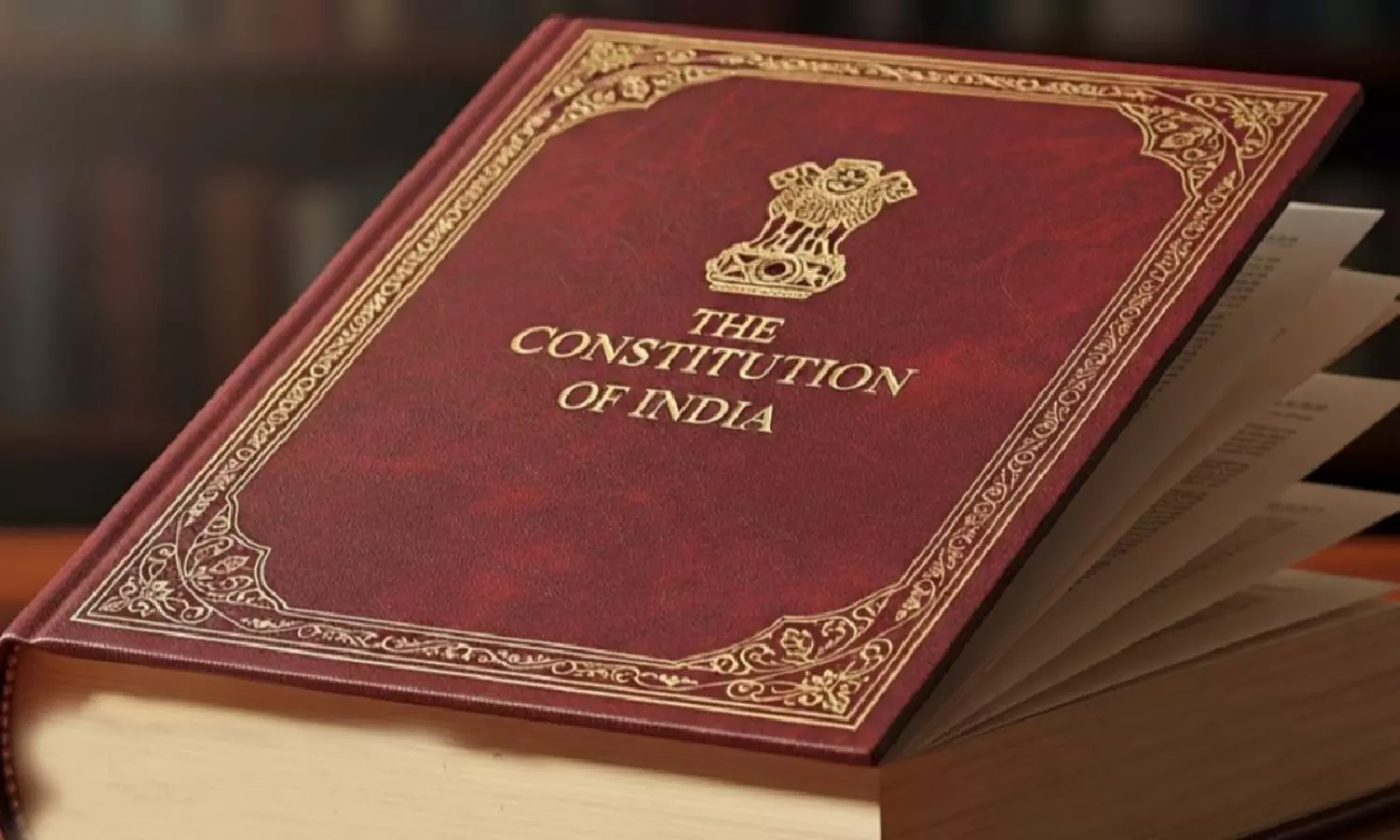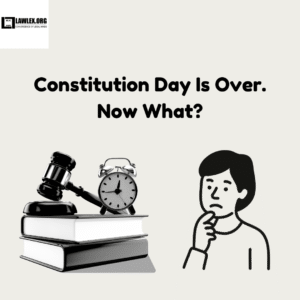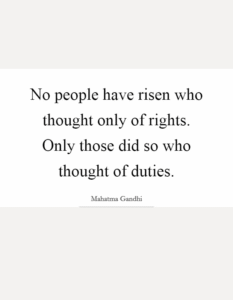Constitution Day has a rhythm of its own. Whether it be revisiting the Preamble, quoting Ambedkar with pride or reminding everyone that our Constitution is the longest written one in the world, it all feels like a warm surge of patriotism. Schools hold quizzes, colleges hold discussions, and there are thoughtful posts shared online. But then what? The day ends. The next morning looks the same as any other morning.
So, think on this- If the Constitution really matters to us, why does its relevance feel limited to just one day?
There’s no doubt that Constitution Day is symbolic, but the document it honours isn’t. It governs power, liberty, and every relationship between a citizen and the state. A calendar event can remind us of this, but it cannot embody it.
So I ask again, if the Constitution Day is over, what now? What does the next step look like for a country of 1.4 billion people, most of whom interact with constitutional principles without even realising it?
To answer that, let’s understand what the Constitution demands from us.
The Constitution doesn’t want celebration; it wants participation
The framers never imagined a nation where people treated the Constitution like a monument, something to admire quietly from a distance. They wanted it to be a living document shaped by arguments, debate, dissent, and informed citizenship.
Reading the Preamble once a year is easy, but living it is where the real works begin.
Take liberty, for example. We quote it endlessly on 26 November. But liberty demands far more than admiration. It demands that we speak with responsibility, we protect those who are silenced, and we refuse to let fear override reason.
Equality, another celebrated value, goes beyond legal guarantees. It shows up in how we behave at home, at work, online, and in our streets. It demands that we confront bias, not only in institutions but within ourselves.
And justice, which is the first word in the Preamble, is not limited to courts. Justice is in how we treat others, how we distribute opportunities, how we speak about people who look or live differently from us, and how we respond when injustice is happening around us.
Small Things, Big Impact
Many people believe constitutional values come into play only during elections or national crises. In reality, they operate in daily life.
When you question a fake WhatsApp forward, you are protecting constitutional values.
When you call out an unfair rule in college, you are practicing them.
When you stand up for someone being discriminated against, you are living them.
When you read a policy before reacting, you are strengthening democracy.
And when you listen to someone you disagree with, you are supporting the idea of fraternity.
Constitutional behaviour isn’t dramatic. It looks ordinary and bare minimum, but it shapes the nation more powerfully than any ceremony.
Enjoy Rights and Respect Responsibilities
We love quoting our fundamental rights. They feel empowering, and they should. But rights are meaningful only when they are tied to responsibility. One cannot exist properly without the other.
Right to free speech? It comes with responsibility not to harm or incite.
Right to equality? It comes with responsibility to confront discrimination.
Right to constitutional remedies? It comes with responsibility to stay informed.
Right to life and liberty? It comes with responsibility to respect others’ boundaries and safety.
We often talk about rights as if they are gifts. They are not gifts; they are guarantees. And guarantees function only when citizens follow their part of duty.
Pick Up The Tools
We sometimes treat the Constitution like a sacred text that cannot be touched. But the framers built it to evolve. They knew India would grow, struggle, argue, and adapt. They wrote a document flexible enough to stretch across generations.
Today’s India faces challenges the framers could never have imagined:
digital surveillance, artificial intelligence, climate change, online hate, deepfake propaganda, global geopolitical tensions, data-driven governance.
Yet the Constitution gives us the tools to deal with each of these but we just need to interpret old words for new realities.
The tools are right in front of us, but they are useless if no one picks them up. Nothing changes if nothing changes.
The framers trusted the people of India to nurture their creation. After 75 years, the question is simple: are we upholding that trust?
Constitution Day Is Over
Constitution Day is over. The real test begins now.
If we truly want to honour the Constitution, the work must continue long after the speeches end. Here’s what that looks like in everyday life:
Read before reacting. Most constitutional chaos starts with misinformation.
Respect dissent. Democracies collapse not when people disagree, but when disagreement becomes intolerable.
Ask questions. The Constitution was designed for active citizens, not silent ones.
Hold institutions accountable. Respecting them doesn’t mean never questioning them.
Practice your duties. They are your responsibility.
Stay engaged. Read a judgment once in a while. Follow major legal developments. Understand the laws that govern you.
And above all:
Remember that constitutional citizenship isn’t a once-a-year activity. It’s a habit.

Final Words
So yes, Constitution Day is over. But that only means the ceremony has ended. The responsibility has not. The real work begins in the way we think, speak, vote, question, and choose to live.
If every citizen takes even a small part of that responsibility seriously, the Constitution doesn’t just survive, it thrives and that, more than any hashtag or speech, is the true honour we can offer to our living document.



